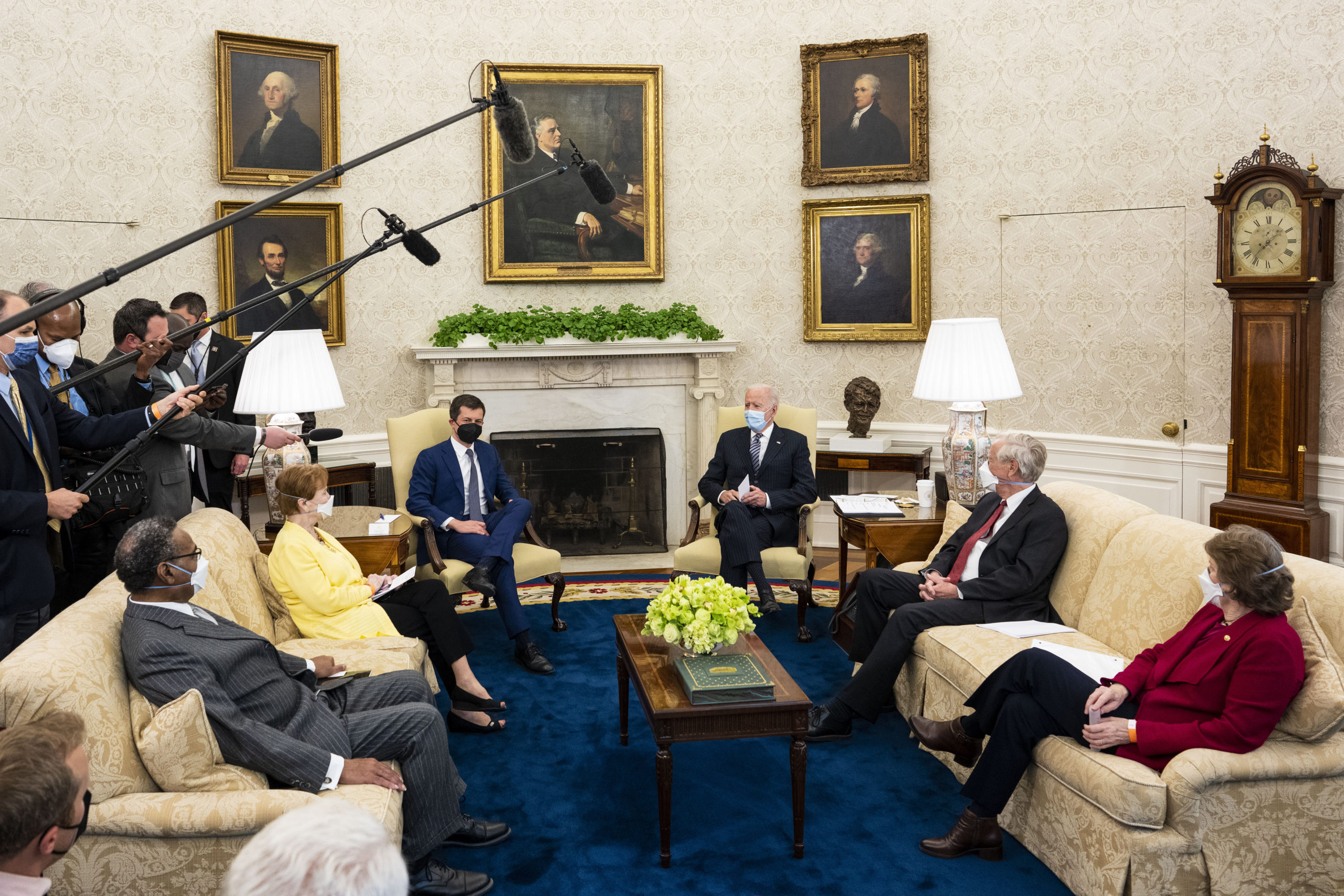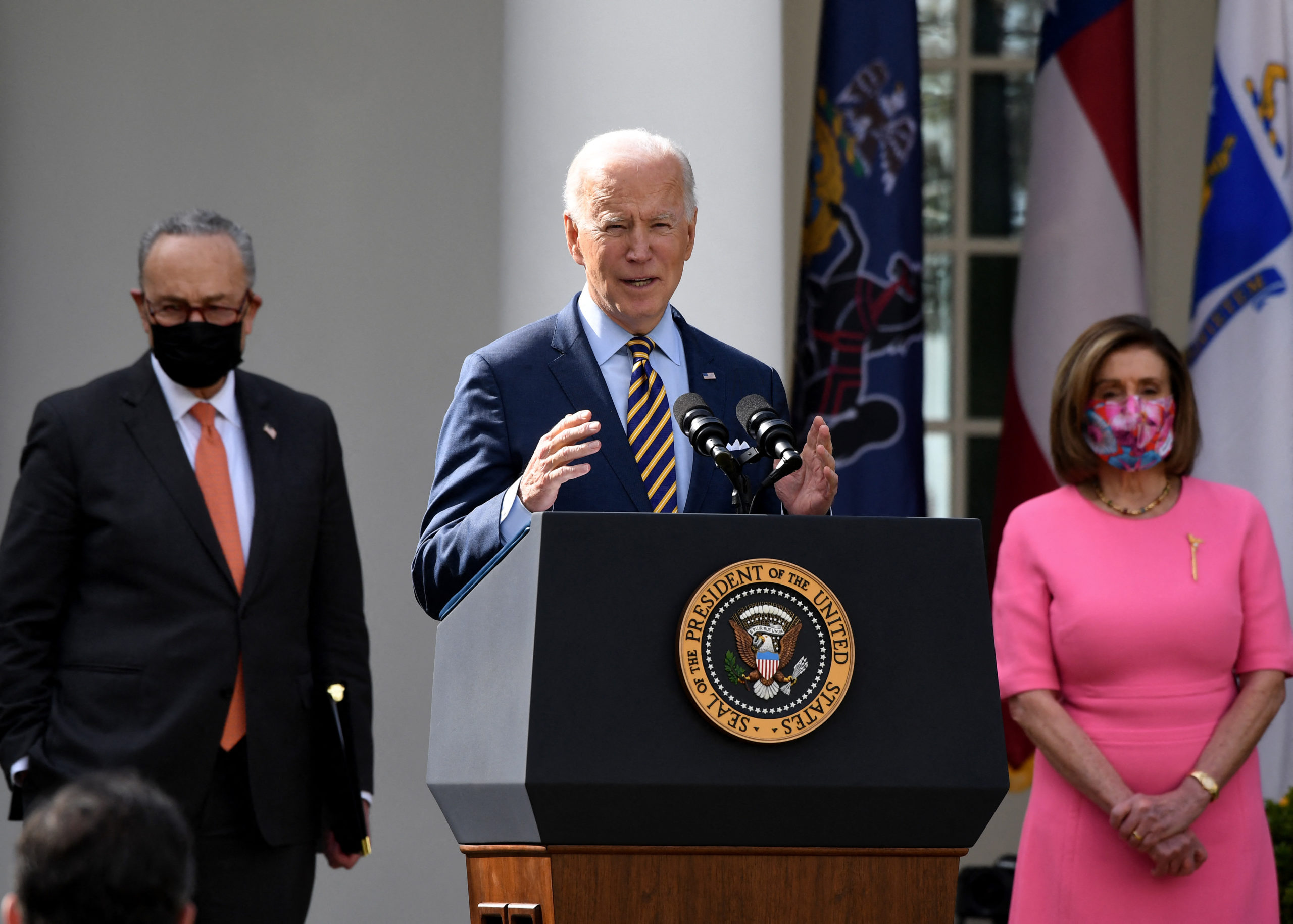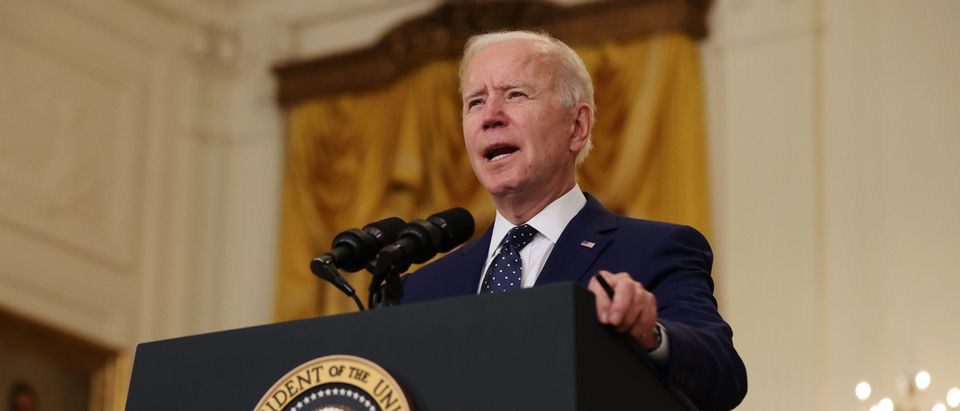President Joe Biden said he is “prepared to compromise” with lawmakers on his $2.3 trillion infrastructure plan, but his strategy appears poised to ignore bipartisanship in favor of pushing through the legislative package with zero Republican votes.
Biden met with a bipartisan group of lawmakers Monday to discuss his American Jobs Plan. The White House said the administration wants bipartisan support for infrastructure spending, but has yet to announce any specific concessions to either Republicans or more progressive Democrats.
“As I indicated earlier, I am prepared to compromise,” @POTUS says ahead of a meeting with a bipartisan group of lawmakers to discuss his infrastructure package pic.twitter.com/n7DD1RN7ui
— Mario Parker (@MarioDParker) April 19, 2021
“He is very open to hearing different ideas, hearing different ways to get these — these big ideas he’s put forward; this historic investment to modernize our infrastructure, create millions of jobs forward,” White House press secretary Jen Psaki told reporters last Friday at a press briefing.
Republican Texas Sen. John Cornyn said on Sunday that he and his colleagues could support an infrastructure package of around $800 billion, according to The Wall Street Journal. Congressional Republicans have criticized the president’s plan for being too costly and including left-wing policy proposals on climate change and racial equity.
Biden’s strategy to pass infrastructure spending has also faced scrutiny for changing the definition of bipartisanship. The White House is claiming a bill has “bipartisan” support if most voters agree with some or all aspects — even if no Republicans in Congress support it.
“If you looked up ‘bipartisan’ in the dictionary, I think it would say support from Republicans and Democrats,” Biden’s senior advisor Anita Dunn told The Washington Post. “It doesn’t say the Republicans have to be in Congress.”
The White House has argued popular support for infrastructure spending, including among Republican voters, is more important than support from their representatives in Congress, according to NPR.
“Overwhelmingly, the majority of the American people — Democrats, Republicans and independents — support infrastructure investments that meets the moment,” Biden claimed last week. “So, I urge the Congress: Listen to your constituents and, together, we can lay a foundation for an economy that works for everyone and allows America to remain the world leader.”

President Joe Biden (C) speaks during a meeting with a bipartisan group of members of Congress to discuss investments in the American Jobs Plan, including (L-R) Rep. Emanuel Cleaver (D-MO), Rep. Kay Granger (R-TX), Transportation Secretary Pete Buttigieg, Sen. Angus King (I-ME) and Sen. Jeanne Shaheen (D-NH) at the White House on April 19, 2021 (Doug Mills-Pool/Getty Images)
White House fact sheets published Monday place new emphasis on how Kentuckians and Californians in particular would benefit from the American Jobs Plan. Senate Minority Leader Mitch McConnell and House Minority Leader Kevin McCarthy are from Kentucky and California respectively.
“12% of Kentuckians live in areas where, by one definition, there is no broadband infrastructure that provides minimally acceptable speeds,” one White House fact sheet reads. “The American Jobs Plan will invest $100 billion to bring universal, reliable, high-speed and affordable coverage to every family in America.”
“In California, there are 1,536 bridges and over 14,220 miles of highway in poor condition,” another White House fact sheet reads. “The American Jobs Plan will devote more than $600 billion to transform our nations’ transportation infrastructure.”
But polling data does not appear to reflect Biden’s argument that his infrastructure plan enjoys bipartisan support from voters. An NPR/PBS NewsHour/Marist survey released April 15 found that 56% of voters overall support the American Jobs Plan, but only 18% of Republican voters support it. (RELATED: Biden Admin Massively Overstated How Many Jobs His Infrastructure Plan Will Create — By Roughly 600%)
Biden also appears to have been unsuccessful in appealing to Republican congressional leaders, as both McConnell and McCarthy oppose the American Jobs Plan in its current form.
Democrats are unlikely to accept Republican alternatives, including the $800 spending bill proposed last week, and may now be more poised than ever to repeat the strategy they used to pass COVID-19 relief in early March.

President Joe Biden, with Senate Majority Leader Chuck Schumer and House Speaker Nancy Pelosi, speaks about the American Rescue Plan in the Rose Garden of the White House on March 12, 2021 (Olivier Douliery/AFP via Getty Images)
Biden signed the $1.9 trillion American Rescue Plan into law March 11 after it passed through Congress without a single Republican vote in either the House or the Senate. But the White House nonetheless praised it as a “bipartisan” victory, pointing to polls showing broad support for COVID-19 relief.
“Without the overwhelming bipartisan support of the American people, this would not have happened. Your elected officials heard you,” the president said in a March 6 address. “Overwhelming public support — every public opinion poll shows overwhelming support for this plan.”
Democrats may be gearing up to do the same thing on infrastructure. Senate Parliamentarian Elizabeth MacDonough ruled in early April that lawmakers could use budget reconciliation for the second time this fiscal year, opening the door for Senate Democrats to push through the American Jobs Plan with zero Republican votes.
It is unclear, however, whether their so-called “bipartisan” strategy will be effective this time. Unlike COVID-19 relief, there is no broad bipartisan support for Biden’s infrastructure plan among voters, and Democratic West Virginia Sen. Joe Manchin previously threatened to block the bill if Republicans were not included.


